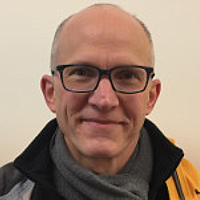
Public libraries can help improve people’s lives through their programs and services, but first people need to know where they are.
There are an estimated 320,000 public libraries around the world, but there is little or no data on where the vast majority of them are and what services they provide, said Chris Jowaisas, a senior research scientist with the Technology & Social Change Group (TASCHA) at the UW Information School. The lack of visibility makes it difficult both for users to access what’s available and for libraries to demonstrate their value.
“There’s very wide differences in terms of the number of libraries that exist in countries and the amount of information about them,” Jowaisas said.
TASCHA is aiming to close that gap with Advancing Library Visibility in Africa, an effort to locate and share information about public libraries. The project, funded by the Bill & Melinda Gates Foundation’s Global Libraries initiative, will begin with 16 African countries. TASCHA, in partnership with the African Library and Information Associations and Institutions (AfLIA), is developing methods for collecting data on libraries with the intent to share it with platforms such as search engines and OpenStreetMap, an open-source tool that feeds many map applications. The data will also be shared with other library organizations, such as the International Federation of Library Association and Institutions (IFLA), which is working to collect additional information about libraries worldwide.
The project includes countries from various regions of Africa. Little is known about the libraries in some of them; in others, such as South Africa, the libraries are well-mapped but could benefit from raising their profile as community assets and showing how they can play a key role in achieving the United Nations’ Sustainable Development Goals.
“There’s a limited set of countries that know where their public libraries are,” Jowaisas said. “The next phase is, once they’re located, figuring out what types of services they offer and how that supports their community’s needs.”
Jowaisas and fellow TASCHA researchers Jason Young, Chris Rothschild and Maria Garrido recently traveled to Ghana to lay the groundwork for the project, which could take several years to complete. The researchers hope to meet an immediate need by sharing the data as it is collected. They also will learn what methods work best as they collect the data, which will inform future efforts elsewhere in Africa and around the world.
A similar project in Nigeria discovered there were nearly six times as many public libraries as had been officially reported, Jowaisas said. By being on the map, libraries make it much easier for people to find them and benefit from services such as literacy programs and digital skills training. It also helps public libraries make the case for greater funding.
“If we’re able to work with our partners to get this information, I think it opens up a lot of possibilities for them,” Jowaisas said.